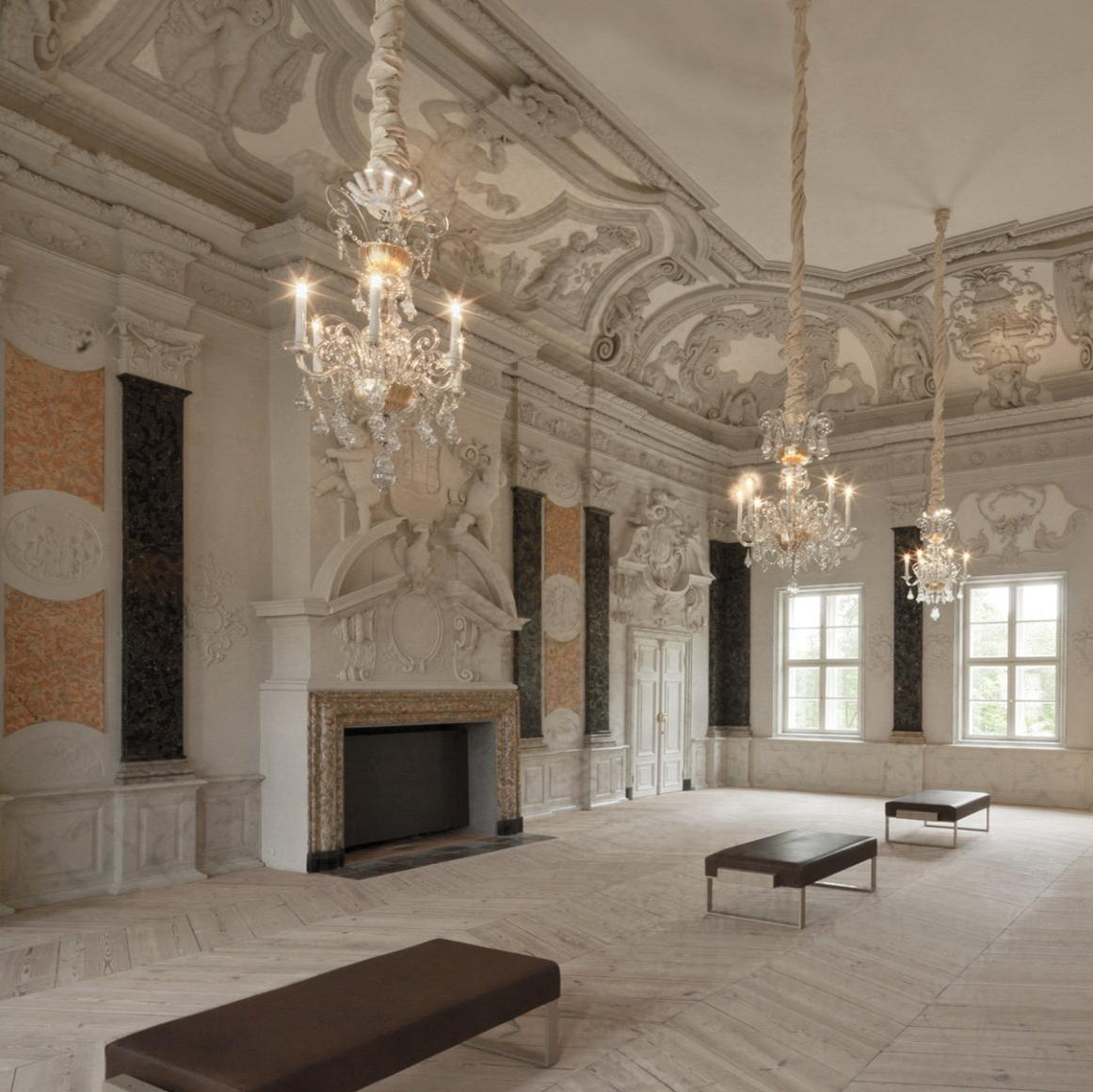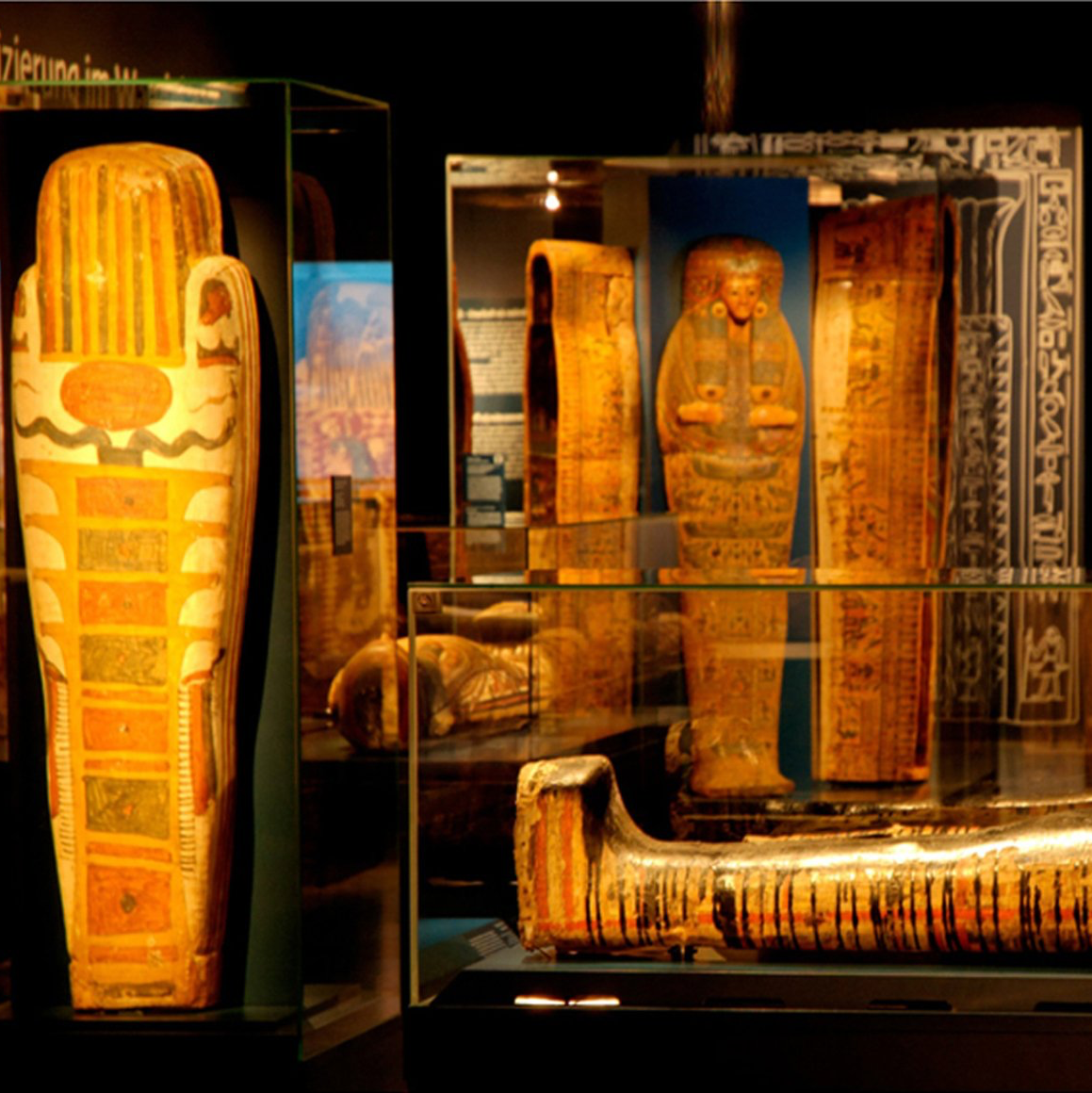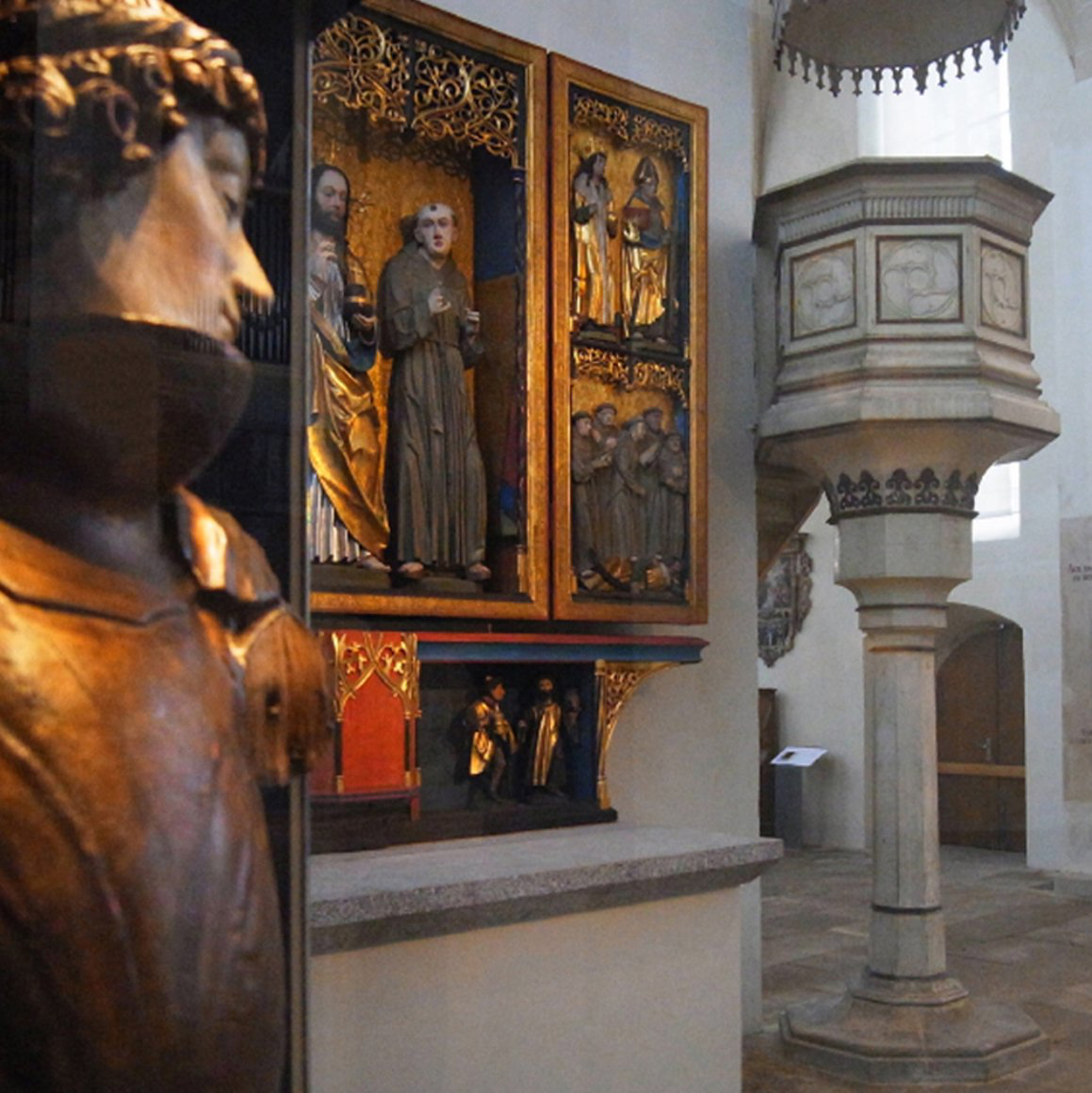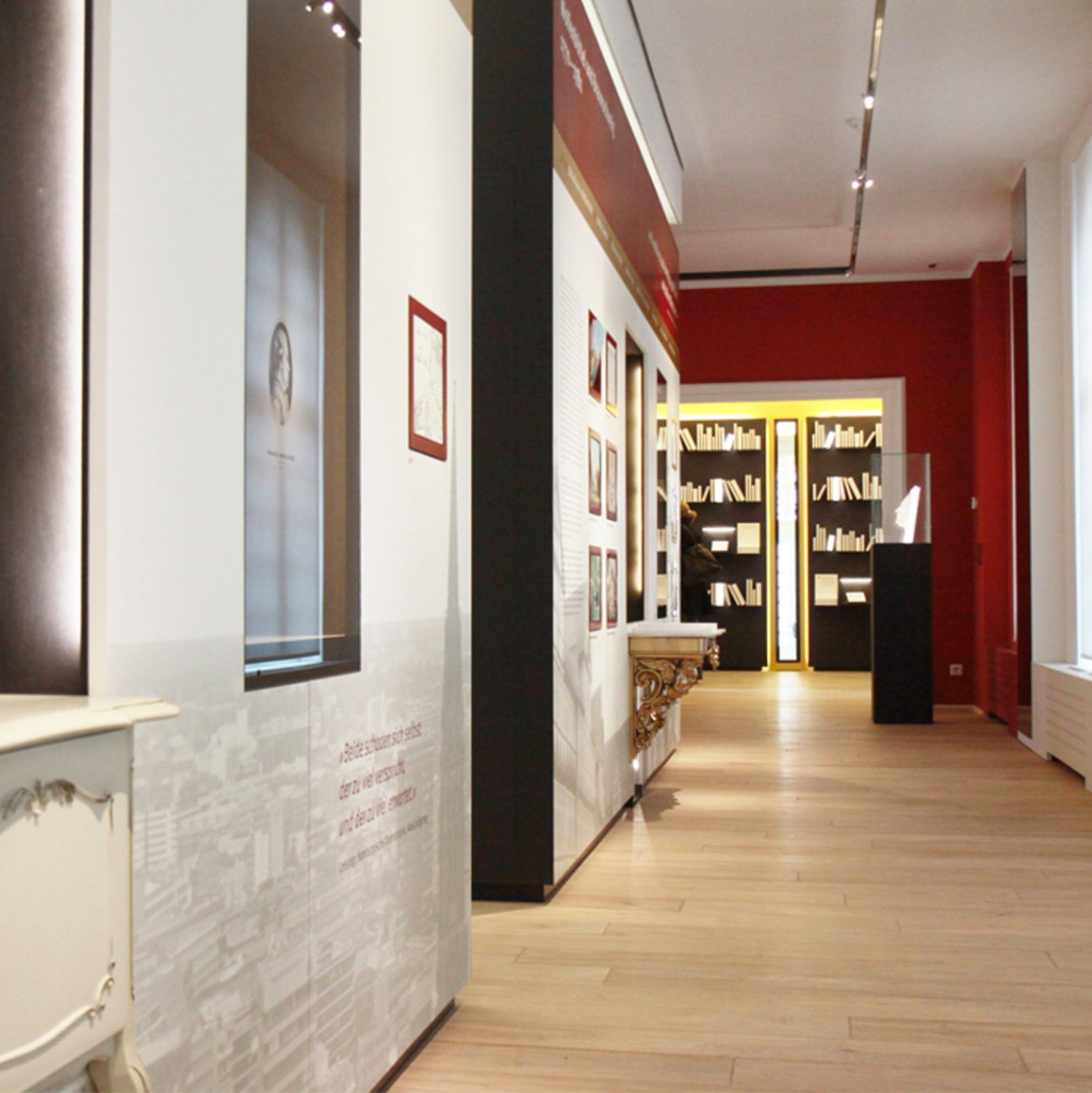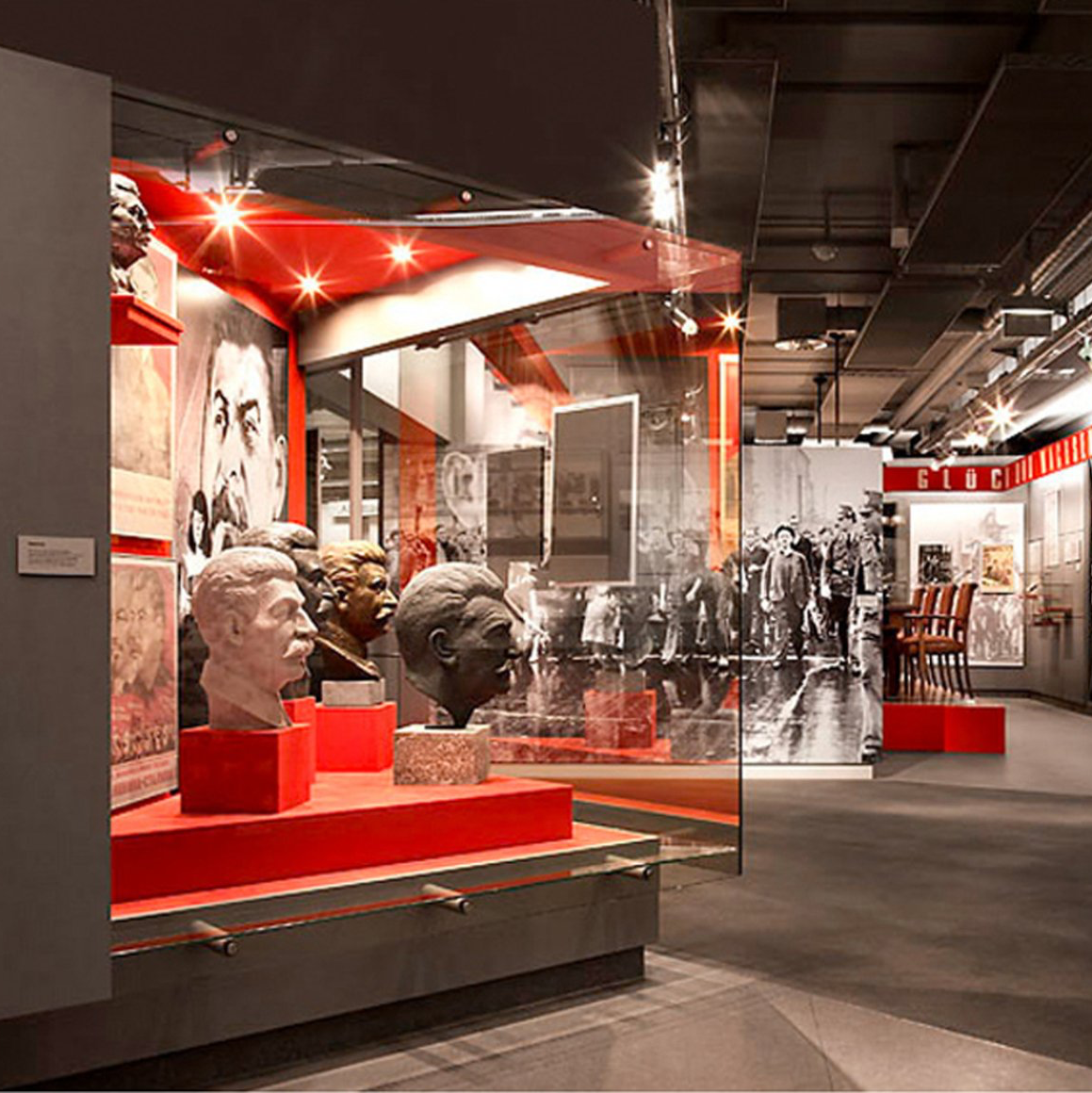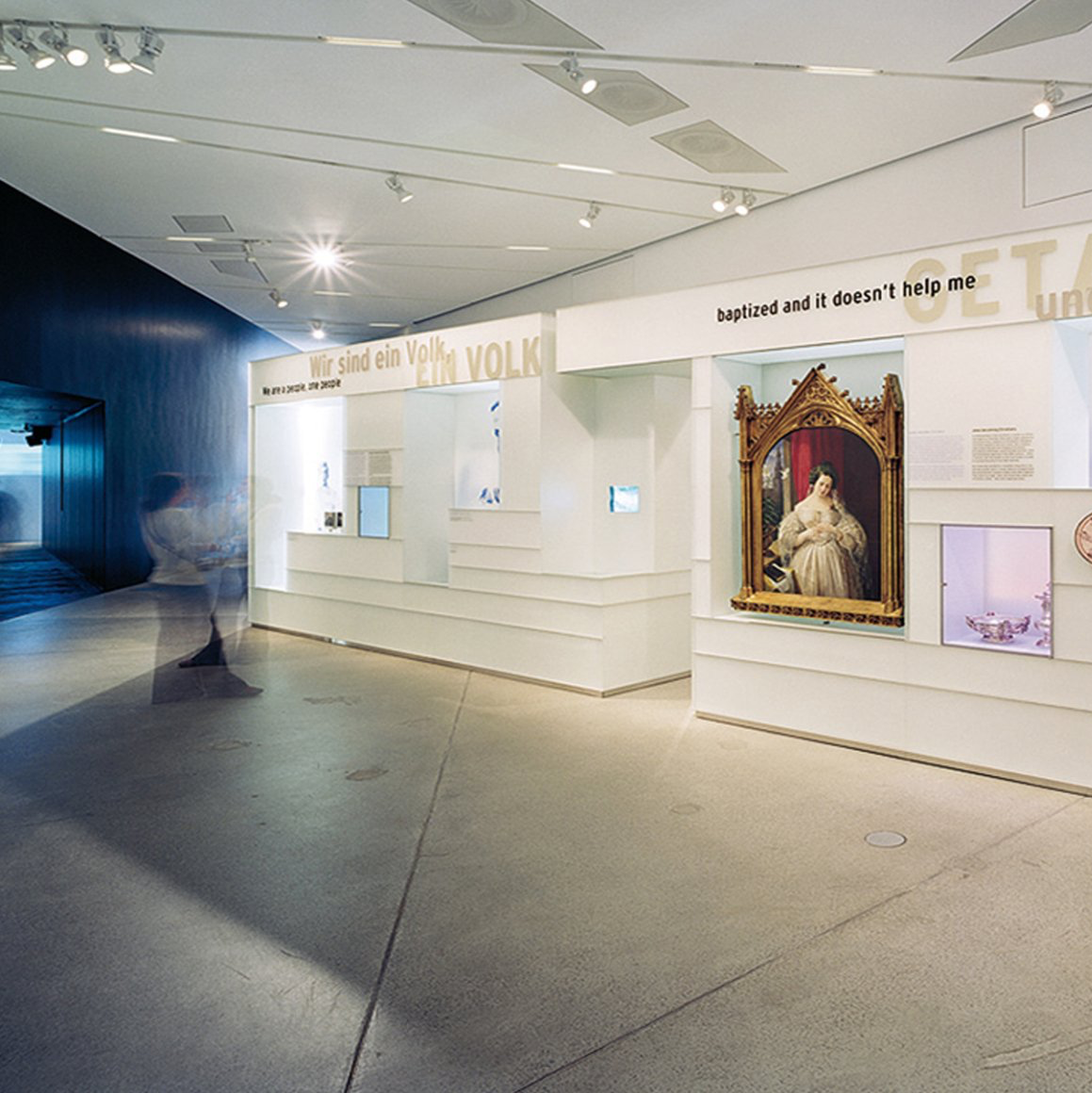Museum lighting design
Reduction, precision, posture
Lighting design for museums, exhibitions & collections
Fischer & Partner Lichtdesign has been planning lighting solutions for museums, exhibitions, galleries, and cultural institutions for over 30 years – with minimalist design, technical precision, and a clear focus on the exhibit. Our roots in architectural, theater, opera, and event lighting flow into every plan – resulting in an emotionally impactful yet understated lighting image.
Light for exhibits – functional, discreet, durable
Our museum lighting uses neutral white, daylight-like ambient light combined with targeted warm or cool white accents. The lighting is designed to be dramatic, with deliberate alternations of light and dark, surface and focus. The result: a clear spatial effect, natural visitor guidance, and minimal sensory overload.
- Modular, maintenance-friendly systems with high spare parts availability
- Uniform luminaire families for calm, consistent design
- Just a shadow – like sunlight – for clear spatial depth
Tailor-made lighting series – everything from a single source
For many museums, we develop our own lighting series that cover all requirements from a single source: from recessed ceiling luminaires to wall luminaires, pendant luminaires, floor lamps, and table lamps. Including emergency lighting and its signage – consistently designed, produced, and integrated into the architecture.
The advantage:
- Holistic planning with the highest precision in close coordination with the architecture
- Design uniformity without breaks due to different manufacturers
- Minimal maintenance effort due to well-thought-out series production and high spare parts availability
This creates extraordinary spaces where architecture, exhibits and light merge into one.
Invisible technology – visible effect
We integrate emergency lighting systems, power supplies, and control technology invisibly into architecture, furniture, or existing structures – even in listed buildings. No technology on the ceiling or walls, no design clutter. What's technically possible isn't the deciding factor – what's architecturally appropriate is.
Experience, attitude and responsibility
Our museum lighting design is:
- aesthetically restrained
- functionally necessary
- economically thought out
- supported by attitude and experience
The light is not the focus – but it carries the space.
Bauhaus Museum Weimar
New building for the Göttingen Art Museum
Schloss Mirow
Museum of Natural History Berlin
UNESCO World Heritage Regensburg
Flossenbürg Concentration Camp Memorial
Dresden State Art Collection
Egyptian mummies
Klosterviertel Kyritz
Württemberg State Museum
Sacred Museum Monastery Church
VIA REGIA Görlitz
Lessing Museum
Pomeranian State Museum
Bad Muskau Castle
Klostermuseum Wiblingen





